Linking prestige with power: Gender, oration, and variable affrication in Ende
Women tend to use standard variants more than men (Labov, 1990), possibly to access symbolic power when traditional avenues to power are unavailable (Eckert, 1989:256). We present results from a study examining variable affrication of retroflex obstruents (ʈ͡ʂ)~(ʈ) and (ɖ͡ʐ)~(ɖ) in Ende, a language spoken in Papua New Guinea. Despite no written standard, Ende speakers have strong opinions on what constitutes “good” Ende. Men, older speakers, and community orators hold positions of prestige. A variationist analysis of the speech of 16 Ende speakers demonstrates that the variable is more likely to be realized as a stop when produced by orators. Among the orators, older speakers and women are more likely to produce tokens as stops compared with younger speakers and men. We argue both that the observed patterns arise because the stopped variants are linked with power and that women orators use the variants to assert symbolic power.
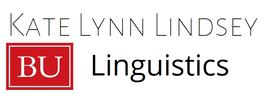
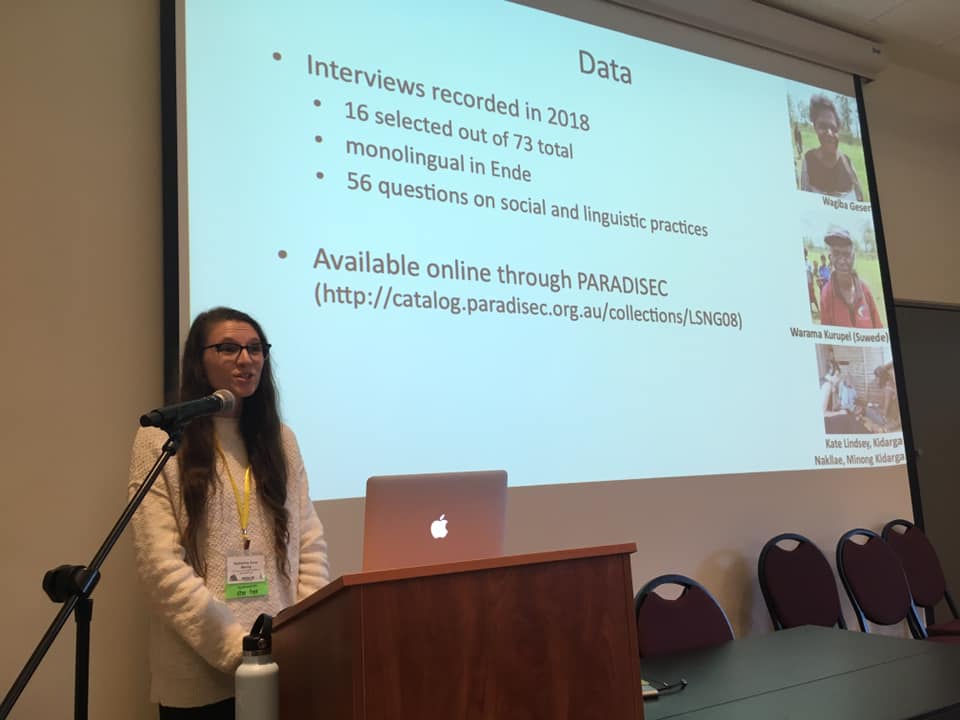

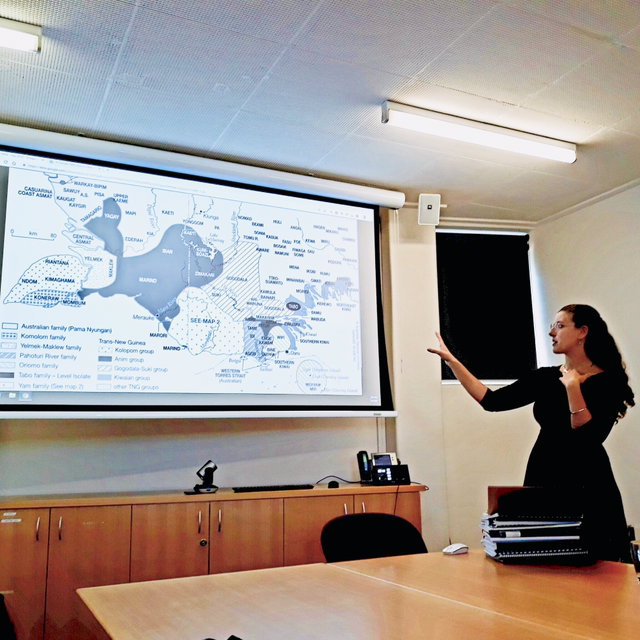
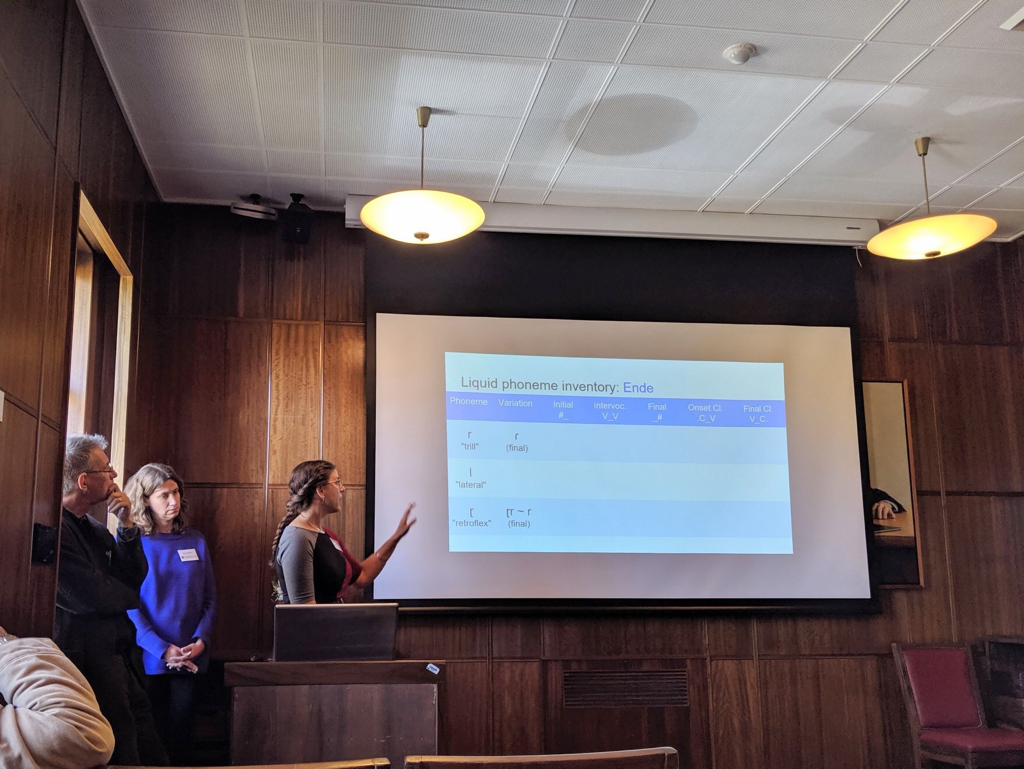
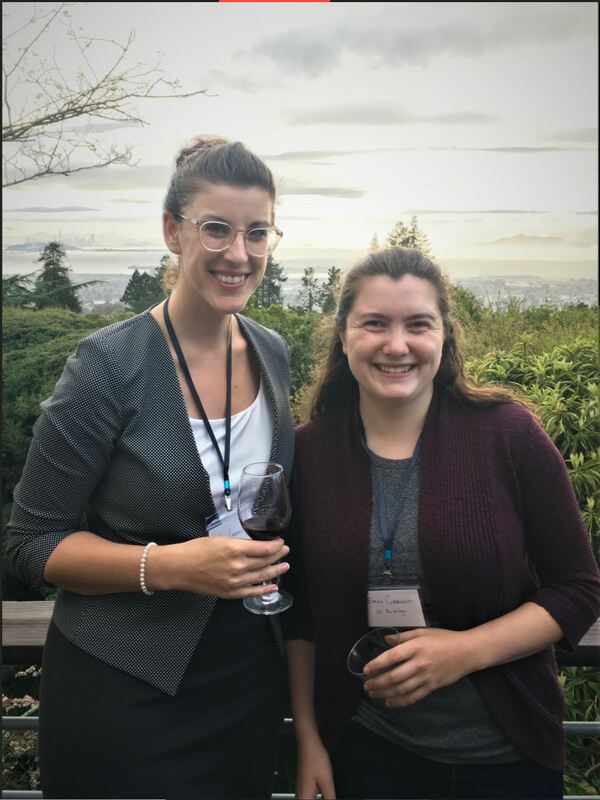
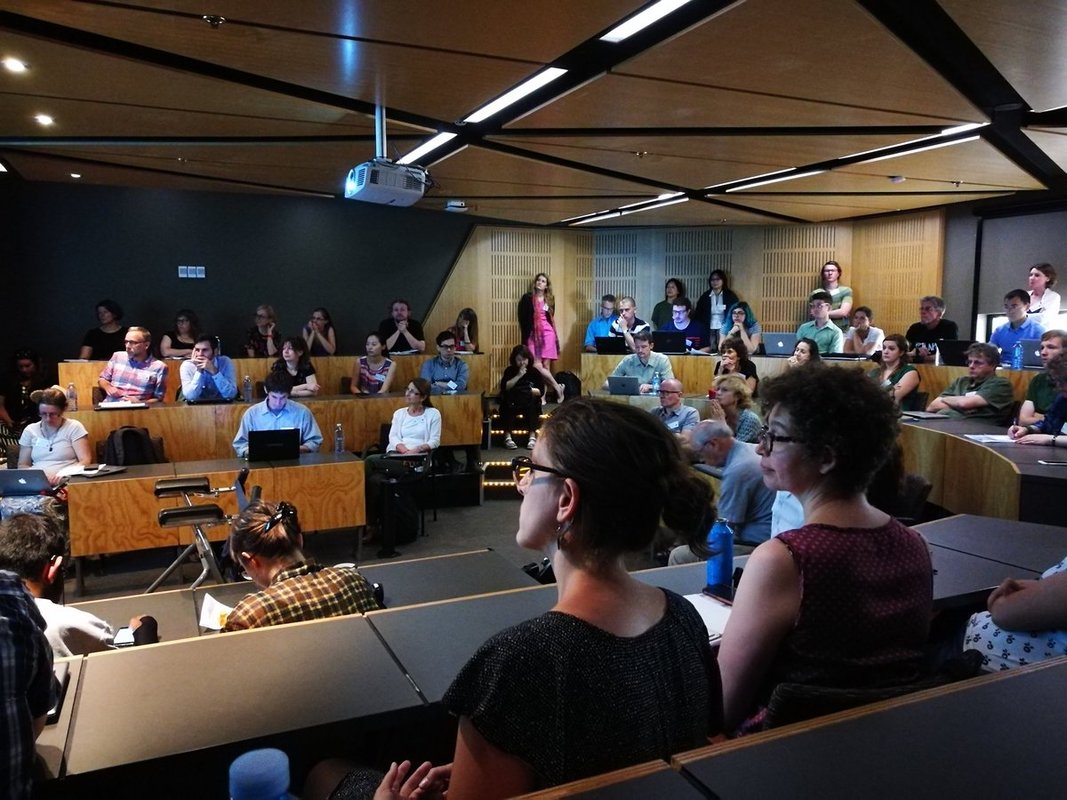
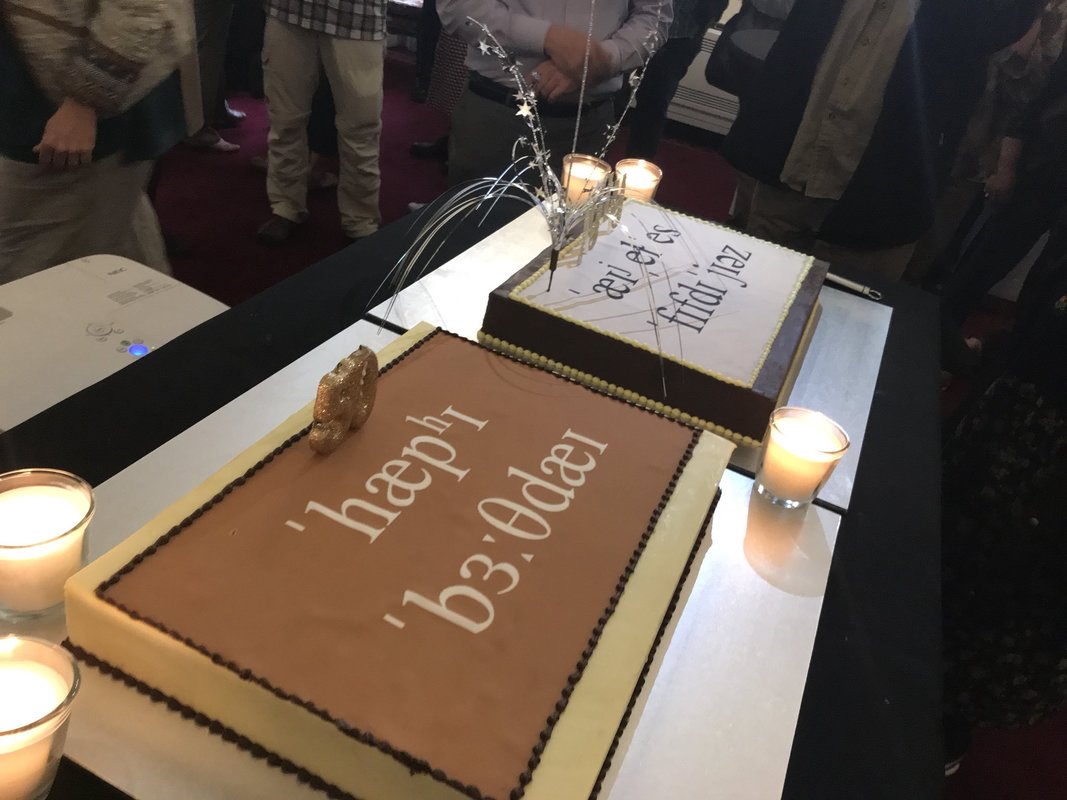
 RSS Feed
RSS Feed
